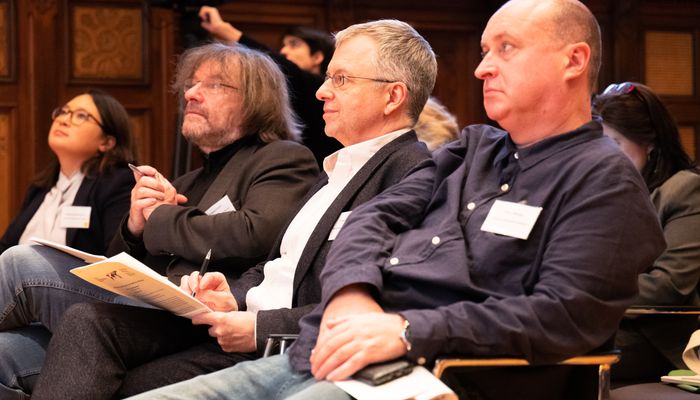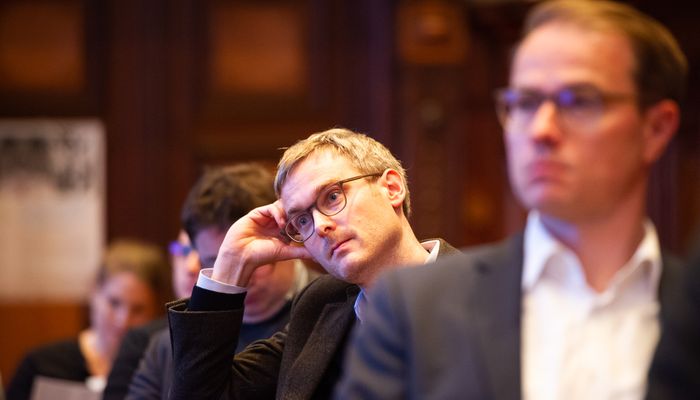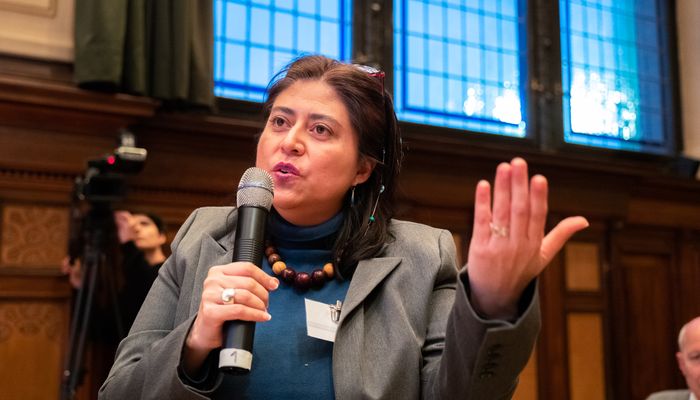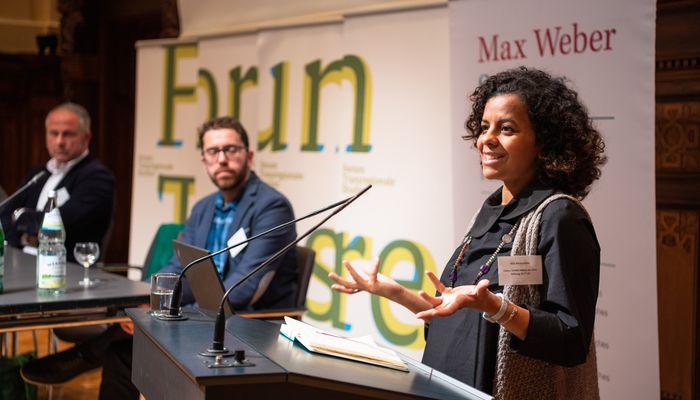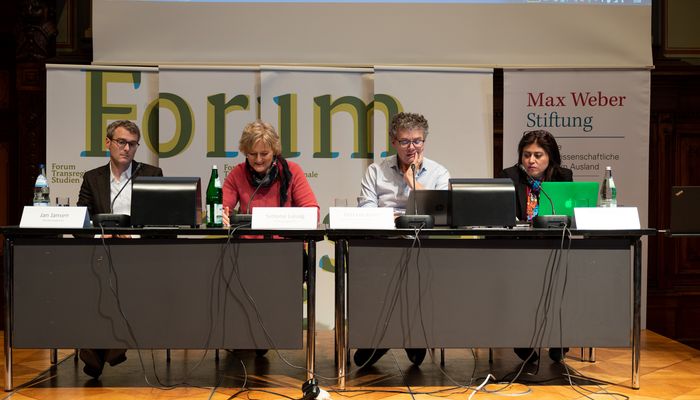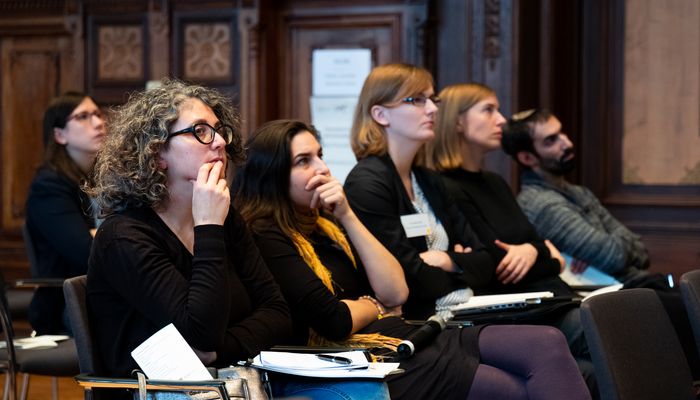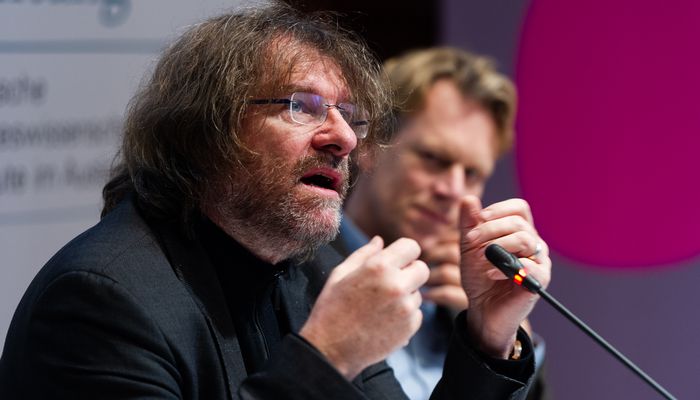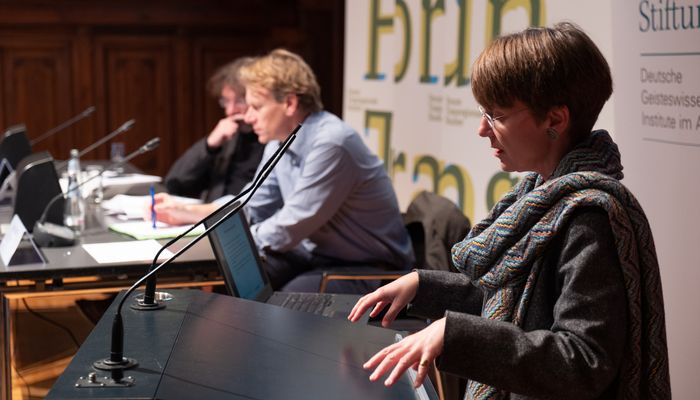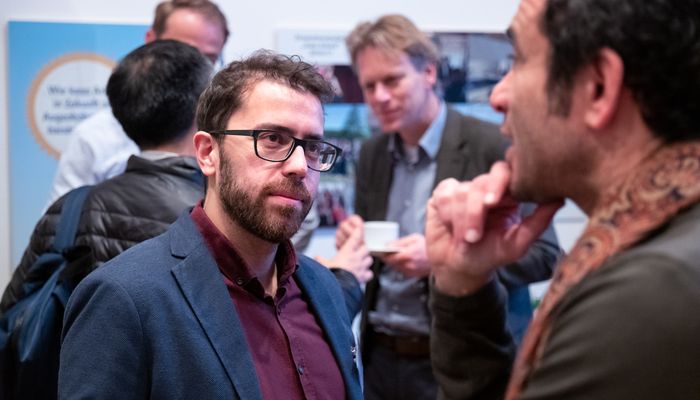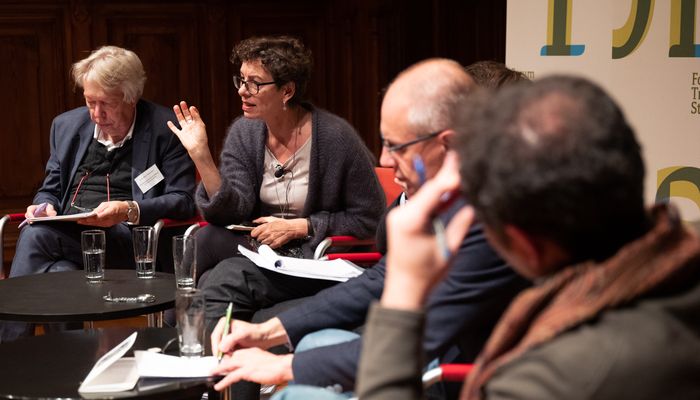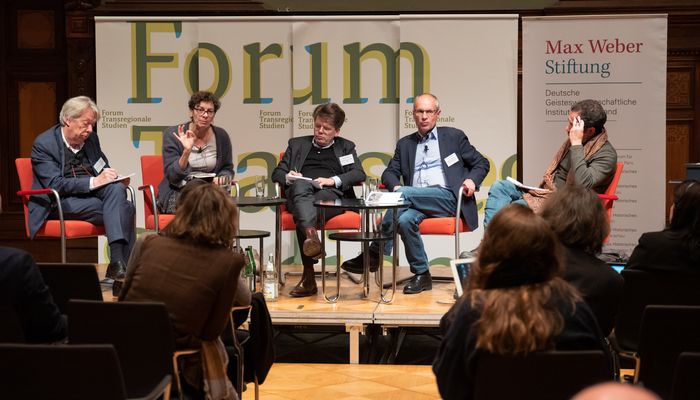Program Flyer [PDF]
Abstracts and Biographies of the Speakers [PDF]
Knowledge and Society in Times of Upheaval
Convened by: Andreas Eckert (HU Berlin / Forum Transregionale Studien), Simone Lässig (GHI Washington) and Franz Waldenberger (DIJ Tokyo)
Wissenschaftszentrum Berlin für Sozialforschung (WZB) Reichpietschufer 50, 10785 Berlin
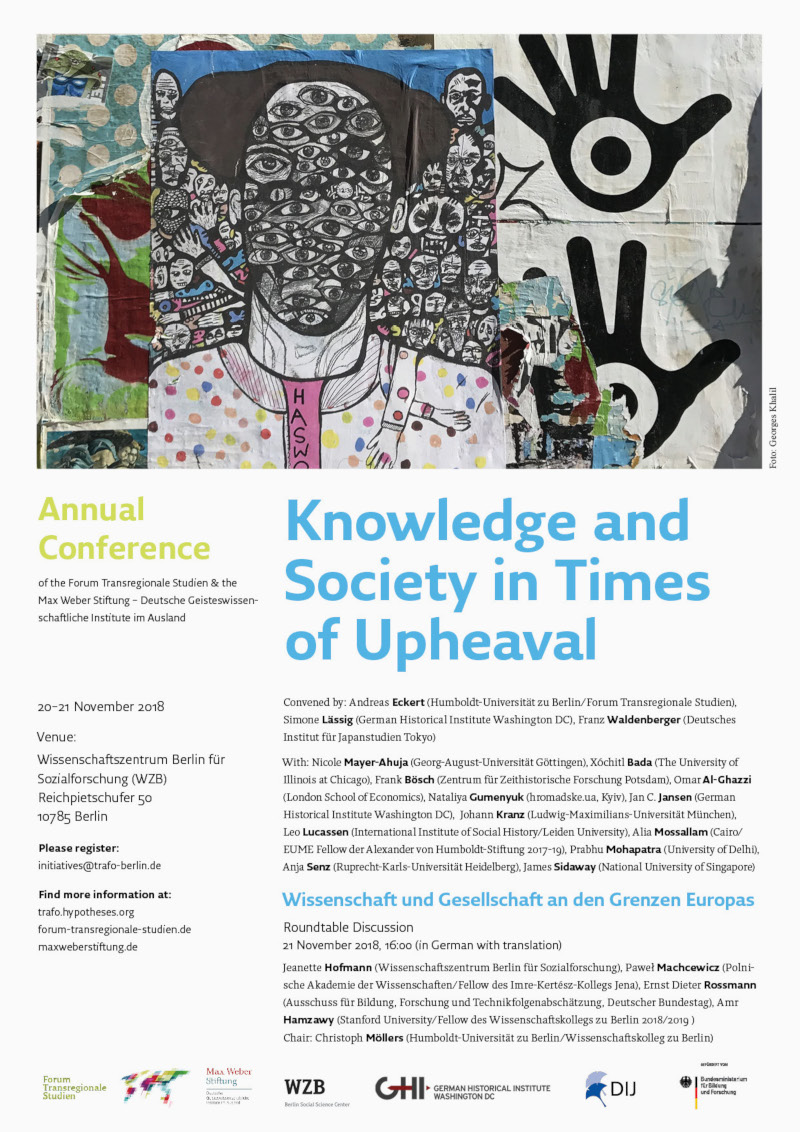
Documentation:
Annual Conference Announcement
Interview with Omar Al-Ghazzi [Audio]
Interview with Nicole Mayer-Ahuja: »There has never been deregulation« [Audio]
Conference Panel Report: »Migration and Mobility« by Levke Harders [Article]
»Professional Managerial Class Liberalism and Global Migration« by Thomas Jessen Adams [Article]
Podiumsdiskussion: »Wissenschaft und Gesellschaft an den Grenzen Europas« [Video]
Conference Talk: Frank Bösch »Western Knowledge About Reforming China (1972-1989)« [Video]
Konferenzbericht von Jule Könneke auf H-Soz-Kult
Conference Talk: Xóchitl Bada »Portable Labour Rights for Migrant Workers in North America« [Video]
The concept of a knowledge society has featured prominently in both academic and public discussions. In recent years, however, it has been supplemented by the internet, digitalization, big data, and the specter of artificial intelligence. While knowledge is always socially constructed, access to knowledge is economically and politically determined. Knowledge and its dissemination define, control and sustain power relations and social rank. In its applied form as technology and skills, knowledge constitutes a productive asset essential for competitive advantage, innovation and growth. But what happens when knowledge becomes data? How do technological innovations transform the relationship of the individual or the community to state and society? How do societies cope with the unprecedented growth of knowledge and the scale of its dissemination and control?
We live in times of great upheaval. The political and epistemic order established in the 19th and 20th centuries appears in disarray as new authoritarian movements and unprecedented forms of control challenge both the ideas and practice of liberal democracy. This change is increasingly perceived as a crisis, and the mobility of people, goods and ideas have emerged as issues of controversy and containment. From a historical perspective, such times of upheaval are not necessarily news, but can be characterized as a “status mixtus,” a transformative period, during which communities, empires, states and societies and underlying knowledge structures are contested and reconfigured. A transregional perspective reveals that mobility and immobility, wealth and poverty, success and failure, have always been distributed unevenly within and between countries or societies.
Upheaval can result from a variety of causes. Specific historical and regional examples enable us to a better understand the diverse and complex linkages between knowledge and social order. Our conference focused on four constitutive relations: 1) new infrastructures as drivers of change 2) discourses and publics, 3) migration and mobility and 4) labour and technological change. A closing roundtable discussion addressed the question of knowledge and society in light of the state of Europe today.
Panel 1: New Infrastructures as Drivers of Change
Speakers: Anja Senz (Ruprecht-Karls-Universität Heidelberg): “China’s Belt and Road Initiative as a Driver of Change in South and Southeast Asia”; Johann Kranz (Ludwig-Maximillians-Universität München): “How to Tame the Tech Giants? Blockchain and the Future of the Internet Economy”; James Sidaway (National University of Singapore): “Planetary Urbanization’s Multiple Frontiers: Viewed through Security Infrastructures of Yangon, Myanmar”
Chair: Franz Waldenberger (Deutsches Institut für Japanstudien Tokyo)
Panel 2: Discourses and Publics
Speakers: Omar Al-Ghazzi (London School of Economics): “The politics of infantile communication in Syria’s war”; Nataliya Gumenyuk (hromadske.ua, Kyiv): “Regaining Public Trust In Times Of Populism. Lessons from Ukraine”; Alia Mossallam (Cairo/EUME Fellow der Alexander von Humboldt-Stiftung 2017-19): “Visualising, Enacting and Writing Histories in Times of Political Upheaval”
Chair: Georges Khalil (Forum Transregionale Studien, Berlin)
Panel 3: Migration and Mobility
Speakers: Jan C. Jansen (German Historical Institute Washington DC): “Papers and Trails: Migration Control and Agency during the Atlantic Age of Revolutions (1770s-1820s)”; Xóchitl Bada (The University of Illinois at Chicago): “Portable Labour Rights for Migrant Workers in North America”; Leo Lucassen (International Institute of Social History/Leiden University): “Expert Knowledge on Migration in the Public Arena: How to Get your Message through?”
Chair: Simone Lässig (German Historical Institute Washington DC)
Panel 4: Labour and Technological Transformation
Speakers: Prabhu Mohapatra (University of Delhi): “Notes on Technology and the Future of Work: A View from India”; Nicole Mayer-Ahuja (Georg-August-Universität Göttingen): “The Fourth Industrial Revolution? Labour in Times of Digitisation”; Frank Bösch (Zentrum für Zeithistorische Forschung Potsdam): “Western Knowledge about Reforming China, 1972-1989”
Chair: Andreas Eckert (Humboldt-Universität zu Berlin/Forum Transregionale Studien Berlin)
Roundtable: Wissenschaft und Gesellschaft an den Grenzen Europas
Speakers: Jeanette Hofmann (Wissenschaftszentrum Berlin für Sozialforschung), Paweł Machcewicz (Polnische Akademie der Wissenschaften/Fellow des Imre-Kertész-Kollegs Jena), Ernst Dieter Rossmann (Ausschuss für Bildung, Forschung und Technikfolgenabschätzung, Deutscher Bundestag), Amr Hamzawy (Stanford University/Fellow des Wissenschaftskollegs zu Berlin 2018-19)
Chair: Christoph Möllers (Humboldt-Universität zu Berlin/Wissenschaftskolleg zu Berlin)

